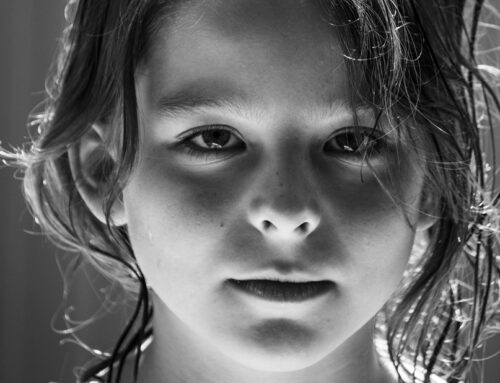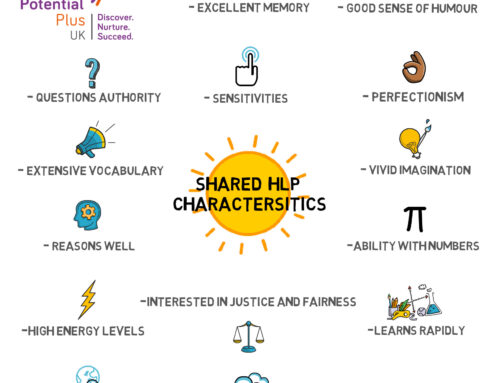Looking after our mental health, and the mental health of those around us, is more important than ever in 2020, as we live through tricky times with so much uncertainty and with many of our sources of support harder to access or simply unavailable.
The coronavirus pandemic has affected us all and will continue to do so for some time to come. During this time, it is common for many of us to experience low mood, trouble sleeping, irritability, tearfulness, feeling numb or cut off from others, and temper outbursts. For most of us this is a normal reaction to recent events and will gradually settle over time.
Mental health research tells us that the best way to look after ourselves involves support from our usual social and family networks, good basic self-care around eating well and exercising, and keeping to a reasonable routine. We also know that some people, for example those with existing mental health issues or living in particularly challenging circumstances, may benefit from specialist mental health support.
This article provides advice on how we can all look after our mental wellbeing and how parents can support their children.
The Importance of Self-care: ‘Five Steps to Mental Wellbeing’
Research highlights five steps which we can take to improve our mental health. These steps can help us to feel more positive and able to get the most out of life. It can be a good idea to ask yourself what you are doing in each area. It doesn’t have to be a lot, but trying to do something in each area can help you to feel well.
- Connect with other people
Good relationships help us to build a sense of belonging and self-worth. With social distancing in place, many of us have made use of telephone calls, as well as video-chat apps like Skype, Zoom and FaceTime, to keep in touch with friends and family. It’s important to get the balance right – some people are very social, while others need more time on their own. Whatever your inclination, remember that social distancing isn’t social isolation – in fact some people are now using the term ‘physical distancing’ to highlight the fact that social connections can continue while we are keeping apart.
- Be physically active
Being active is not only great for our physical health, it also improves mental wellbeing by raising our self-esteem and causing chemical changes in our brain, which can help to boost our mood. It’s best to find activities that you enjoy and make them a part of your life. Some people love an online workout or going for a run or cycle, but housework or gardening, walking, yoga, hula hooping, or dancing around the living room are all great. Anything goes – the important thing is to move as much as you can.
- Learn new skills
Learning new skills can help to build a sense of purpose. During the lockdown lots of people have been baking, learning a language, or taking up or returning to a hobby. Again it’s best to find activities you enjoy and make them a part of your life. Be realistic about what you might achieve. It’s normal to struggle with motivation, especially at the moment, and even doing something for ten minutes a day is a start.
- Give to others
Acts of kindness can help improve your mental wellbeing by creating positive feelings and a sense of reward. It can be as simple as asking friends, family or colleagues how they are and really listening to their answer, or saying thank you to someone for something they have done for you.
- Pay attention to the present moment (mindfulness)
Paying more attention to the present moment involves noticing your thoughts and feelings, your body and breathing, and the world around you. Some people call this awareness “mindfulness”. This can help you enjoy life more and understand yourself better. You can do anything mindfully, from going for a walk to brushing your teeth. The important thing is to really pay attention to what you are doing.
A Young Person Shares her Self-care Strategies
In this video Phoebe, one of the Young Champions at the Anna Freud National Centre for Children and Families, shares the self-care strategies that help her.
https://www.youtube.com/watch?v=-zU9GT7A4nM&feature=youtu.be
Consistency and Routine
Words like ‘consistency’ and ‘routine’ can sound dull. But what we’re really talking about is establishing and maintaining healthy habits. Routines give us an increased feeling of security – something that is especially important right now. We can all benefit from making plans for each day which allow for learning or working, exercising, relaxing and sleeping.
Having a routine may be particularly challenging for some children and young people, especially in the current circumstances and parents can help by modelling a routine themselves.
If a young person isn’t responding to or resists routine, be consistent, stay calm and keep dialogue open. Supportive relationships and gentle persuasion have more chance of working than conflict. Try to avoid escalating conflict when tensions are rising. Parents can remove themselves from the situation and return to the issue when everyone feels calmer and more receptive to addressing it.
Ideas for Self-care – for Young People (or for Kids of All Ages!)
The Anna Freud National Centre for Children and Families has worked with young people and mental health professionals to come up ideas for self-care: https://www.annafreud.org/resources/children-and-young-peoples-wellbeing/self-care/ Some of the suggestions are not possible at the moment, for example going to the cinema, but most are. It’s up to us to decide what helps us. If something helps, keep doing it. If it doesn’t, stop and try something else.
It’s important to remember that these activities are not a substitute for speaking to a mental health professional if you need to. Sometimes we need outside help and advice.
Six Tips to Support a Worried Child
The six ways to support a child that are listed below are based on a Cognitive Behavioural Therapy (CBT) approach. CBT is one of the therapeutic approaches most commonly used to treat anxiety and low mood. It is a practical therapy which helps people to tackle problems that can feel overwhelming by breaking them down into smaller parts. By helping a child to challenge their own negative thinking or behaviour patterns, CBT aims to improve the way they feel.
Tip 1: Create a space for conversation
Demonstrate that you are available to talk but don’t force the conversation – children may find this intrusive. They often find it easier to talk while doing another activity, such as drawing, going for a walk or baking.
Tip 2: Demonstrate calm
We know that children are good at noticing when others around them are anxious. Children watch the behaviour of others to work out whether they should feel anxious themselves. Even if you’re feeling anxious on the inside, you can help your child by remaining calm on the outside. This can reassure them that things might be difficult, but they are manageable.
Tip 3: Empathise and validate
We often want to reassure children and to help find solutions to make them feel better. But first spend time listening to your child, asking them questions, and showing an interest in viewing things from their perspective. Be accepting of their worry, anger and sadness about how things are at present. Try to avoid early reassurance which can often sound like “everything’s fine”.
Tip 4: Introduce alternative perspectives and ways of thinking
A worry is a thought, not necessarily a fact. Listen to the child and try to understand exactly what they are concerned about. Are the worries likely to happen, and if so what would it mean? Exploring alternative ways of looking at things might help to put worries into perspective and in turn result in less anxiety-provoking conclusions.
Tip 5: Reduce environmental stresses
Help the child to consider and recognise what makes anxiety worse, for example, constant exposure to social media or the news, or the withdrawal of daily activities which may have previously provided support. Try to keep to a routine with activities throughout the day (for example, school work, exercise, relaxing, keeping in touch with friends and sleep). However, don’t add pressure if they seem overwhelmed. Instead emphasise the importance of self-care and being kind to themselves.
Tip 6: Problem solving and coping
It is important for children to try to problem solve for themselves. Focus on emphasising your confidence in the child’s ability to cope and engage them in thinking about different strategies. For example, ‘‘I know you are worried about us getting sick, but what are the things we can do to keep ourselves safe?’.
Holding the Hope
Therapists often need to hold onto hope for their clients at times when their client may feel hopeless. In the same way parents and teachers can hold onto hope on children’s behalf – holding the hope that somehow this situation may make space for something different and better to happen.
It is important to validate and acknowledge difficult feelings around missed opportunities and disappointments. But it can also be helpful to engage children in conversations about what they are looking forward to.
This message of hope about the future is important to all of us at this time, and children are no exception.
Where You Can Get Help
CAMHS Child and Adolescent Mental Health Service (CAMHS)
CAMHS is open and if you would like to access your local CAMHS service you can self-refer although going through a GP can be helpful. If your child attends school, contact the SENDCO who will be able to help you.
Childline, run by the NSPCC, is open from 9 a.m. and most nights and supports anyone up to 19 years old. It may take longer to get through and the quickest is to dial 0800 1111. https://www.childline.org.uk
Young Minds has a wealth of resources and can support parents by phone on 0808 802 5544 or by email. Visit their website for details https://youngminds.org.uk
Anna Freud National Centre for Children and Families is a charity which supports families and children with issues around mental health as well as carrying out research https://www.annafreud.org

About the author: Neera Dhingra is the Well-being Project Manager at Parliament Hill School. London
Parliament Hill School received the Above and Beyond Awards Effective Provision in School Award in 2019.






